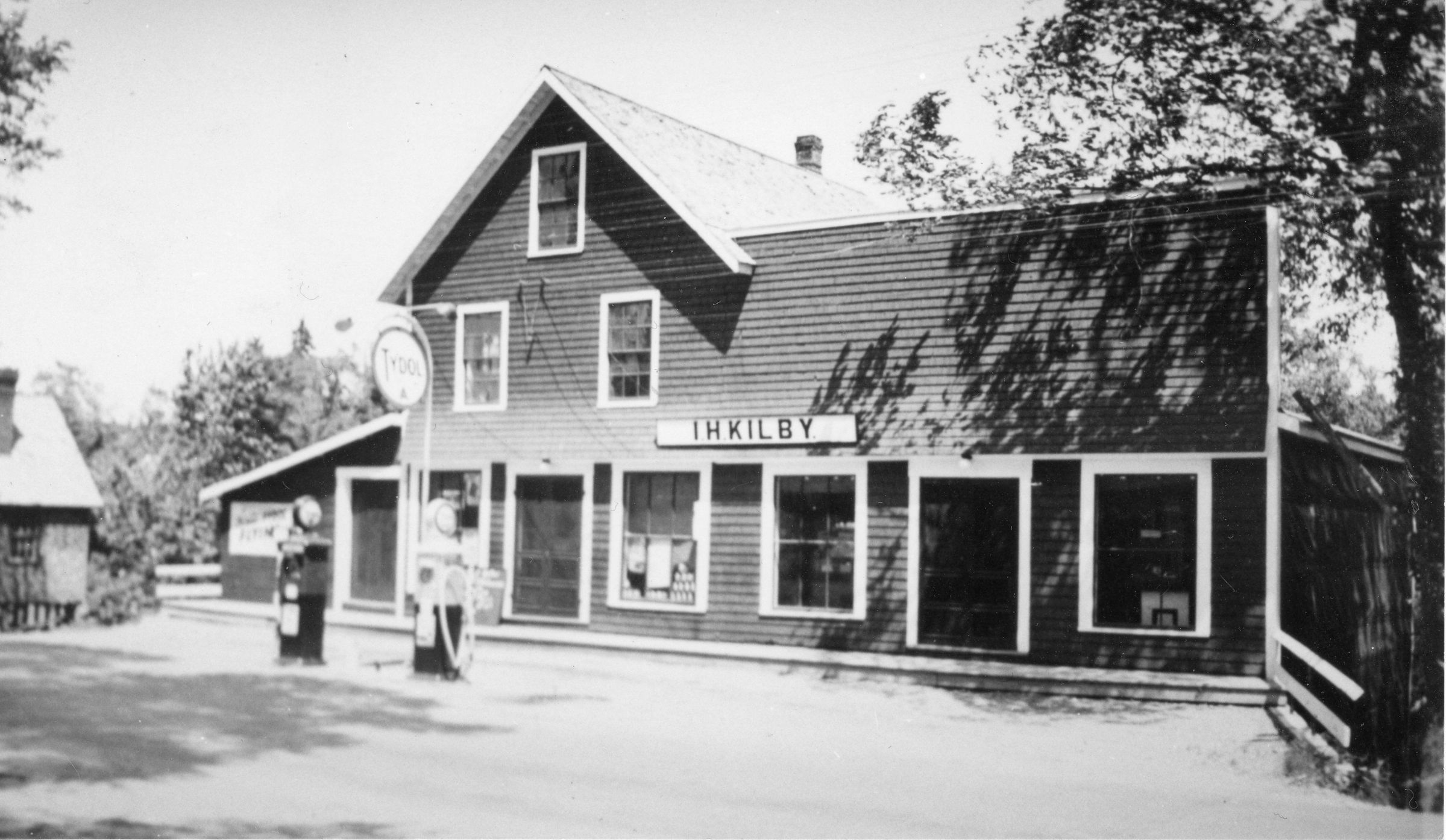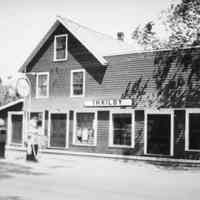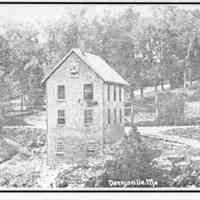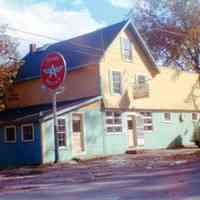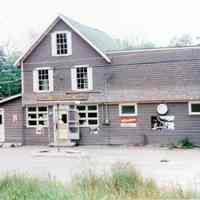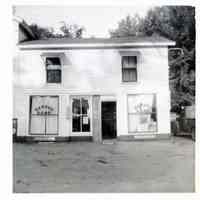Kilby's General Store, Dennysville, Maine
Florriman Wilder was a metalsmith who operated a machine and carpenter's shop on the banks of the Dennys River, in a building that later became Kilby's General Store. He is remembered particularly for making the first continuous tread, now known as the caterpillar track, designed to get big logs out of the woods in mud season. Alfred Kilby solved the problem by inventing a traction truck, motivated by horses or oxen, which utilized the endless track concept. It was the ancestor of the many caterpillar track vehicles now in military and industrial use. The actual builder of the traction truck, which had four wheels on either side that rode easily on a revolving metal track, was Florriman Wilder. Recognition was granted to Alfred Kilby by the United States Patent Office on May 13, 1902. This antique logging vehicle was presented to the Smithsonian Institution in the 1950's by June (Kilby) Hallowell and Katherine (Kilby) Schaeffer, great-granddaughters of the inventor, Alfred Kilby. When local resident, Clyde Mattheson, was on duty in the Aleutian Islands during World War II, he saw caterpillar tractors in use that bore the label "Kilby tread." Early in the twentieth century, about 1908, Irving Kilby purchased Florriman Wilder's machine and carpenter shop at the foot of Harrison Avenue and converted it into a store where one could buy almost anything from shoestrings to stovepipes. At first there were two rooms, with dry good, clothing, shoes, and rubbers (also the candy counter) in one and groceries and hardware in the other. Later the partition was removed and the store rearranged. When I. H. Kilby retired in the 1940's, the business was operated by his son, Keith. Interesting features of Kilby's store were the vinegar barrel with its wooden pump; the kegs of sweet gherkins, which were sold in bulk,; and the cast iron string holder, which was the subject of one of Keith's tall stories. The iron ball, which was attached to the ceiling, held the string for paper-wrapped parcels. According to Keith, a customer one day picked up the end of the string from the counter, along with her bag of groceries, and carried it out of the store, across the street, and into her car. She was driving up Store Hill before Keith, finally realizing that the string holder was emitting whirring sounds and sparks from the rapidly spinning ball of twine, broke the string. Milton Lyons, who had clerked in Kilby's Store since 1946, bought the store in 1969, after Keith's death, and operated it with his wife Amy, until their retirement. They were succeeded by their son and daughter in law, Leonard and Ruth Lyons, who carried on the business for about five years, before selling to Dana Cox, who closed the store in 1986. The building was purchased for use as karate studio among other things, and burned down a few years later.
Dennys River Historic PhotographsPhotos for Map
